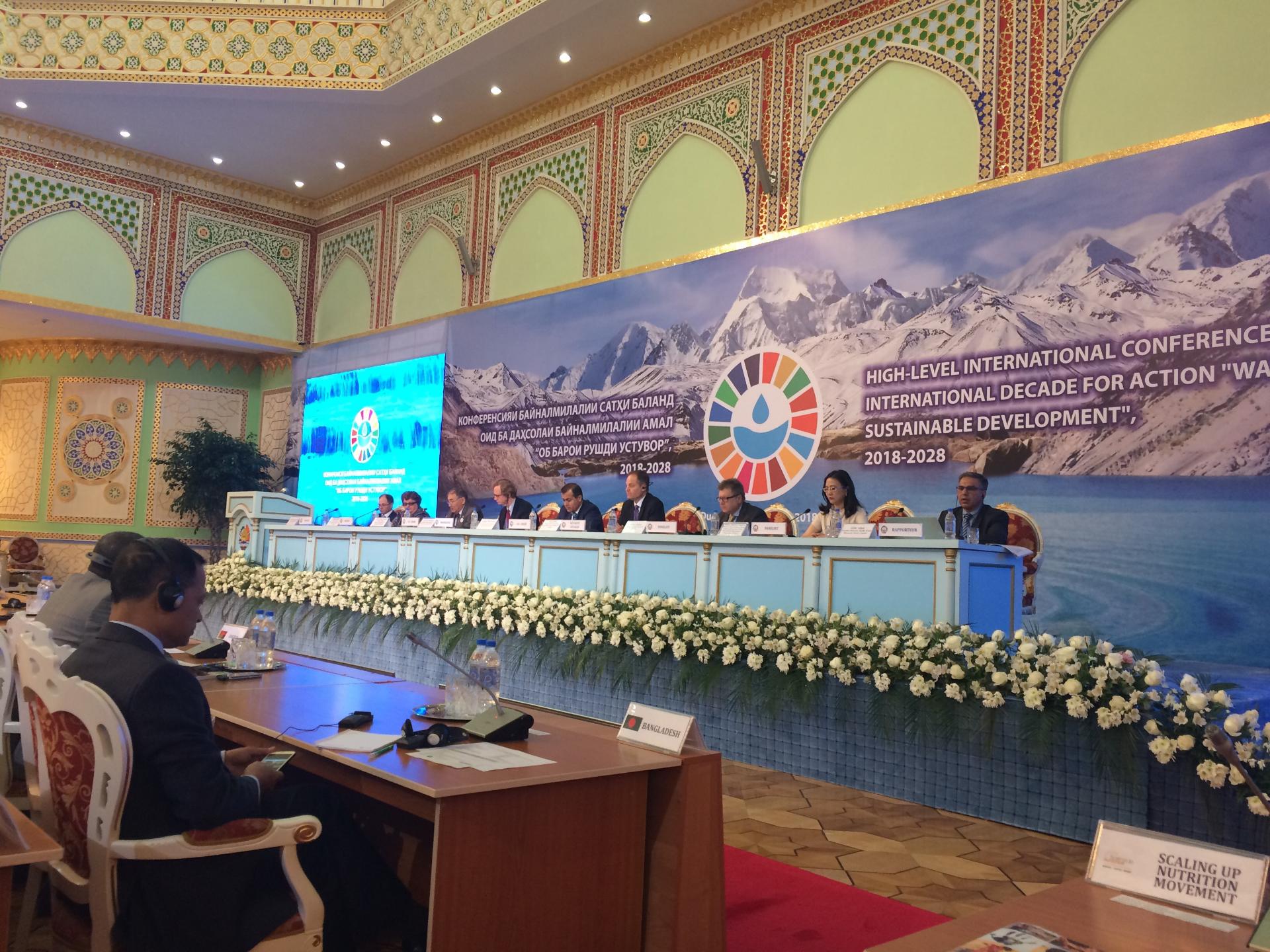riverbp
News / Workshops and conferences
Water-Energy-Food Nexus was discussed at the Conference “Water for Sustainable Development”
 04.07.2018
04.07.2018
On 20-22 June 2018 an International High-Level Conference on the International Decade for Action «Water for Sustainable Development, 2018-2028, was held in Dushanbe. Water-Energy-Food Nexus in the context of water resources management was highlighted in the Resolution adopted by the UN General Assembly “International Decade for Action, “Water for Sustainable Development”, 2018–2028, and became one of the main themes of the conference.
The water, food, energy and environment (WEFE) nexus approach aims to create synergies, trade-offs for different sectors in order to improve water, energy and food security without damage to ecosystems. The nexus approach compels us to think more long-term, including providing room for multi-sectoral dialogue and negotiation. Thereby, it contributes to more robust institutions and coherent policymaking.
Action Panel was organized by FAO, IFAD and IWMI, in collaboration with SIWI, UNECE/Water convention and the Pacific Water Research Centre. Representatives of IWMI, Ministry of Agriculture of the Republic of Kazakhstan, UNESCO, UNECE, CAREC, Paraguayo de Itaipu Binacional and Earth Forever exchanged opinions on the following questions:
- What are the interdependencies across water, ecosystems, energy and food sector at national and transboundary levels?
- What are the knowledge gaps?
- What policies, governance structures and actions are needed and how integrate the nexus into national policies?
- What are the technology innovations that address the nexus?
- What is the role of the nexus in the Agenda 2030?
WEFE sectors are strongly interlinked. Actions in the one sector commonly affect the other sectors. Water is used for energy production, and conversely, energy is needed for extracting, transporting, distributing and treating water. The production of food requires water and energy. Agriculture is by far the largest user of water accounting for 70% of water withdrawals and the agri-food sector energy demand is around one-third of the world’s total final energy demand.
However, Often, plans develop without consideration of similar initiatives in other sectors. This planning and implementation lead to asymmetries and tensions, sometimes even contradictions of policies. It also generates additional financial costs, for instance when infrastructures fail to address multiple purposes. Additional funds required to cover costs related with social or environmental risks management, as well. The issue is that investment financing needs for water, agriculture and energy infrastructure have generally been considered separately.
Farkhod Abdurakhmonov, Manager of CAREC’s Water Initiatives Support Program, noted CAREC’s activities in mainstreaming the WEF Nexus approach in Central Asia, implemented with the support of the European Union and in partnership with the International Union for Conservation of Nature. In particular, by intensifying the engagement of stakeholders for promotion of the integrated solutions, embracing the water, energy and food security for environmentally sustainable economic development of the region.
As a result of the International the Final Declaration “Promoting Action and Policy Dialogue” was adopted. The Declaration stressed the need to manage in an integrated and sustainable manner water resources from source to sea around the water, food, energy and environment nexus, including by promoting the concept of circular economy and other relevant resource efficient solutions. The Declaration called to prioritize water diplomacy and transboundary cooperation in line with the applicable principles of international law by strengthening inter alia the means of information and data exchange, open and inclusive multi-level and intersectoral dialogue in order to foster mutually beneficial solutions and institutional arrangements

